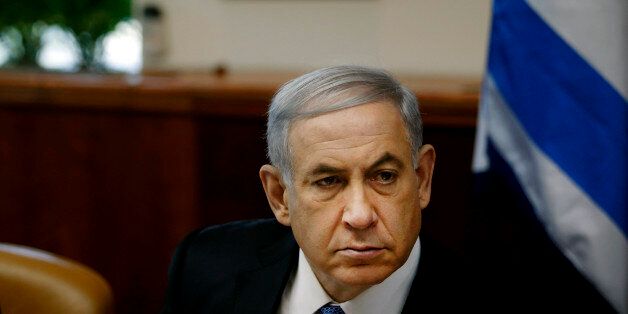Peter Mellgard is a deputy editor of Noema Magazine and the editor of the Berggruen Press.
As European governments, one by one, vote to recognize a Palestinian state, Israelis are wrestling with their own questions of national identity in a polarizing debate that some say will destroy the state of Israel in its current form.
On Tuesday, the lower and more powerful house in the French Parliament voted to support the establishment of a Palestinian state. Though it was a symbolic move that is unlikely to change France’s foreign policy or its diplomatic support for Israel, the vote added weight to a growing cascade of pro-Palestinian sentiment in Europe. In a similar vote in October, U.K. lawmakers voted to back the Palestinian push for statehood. According to reports, Belgium could soon follow suit. The European Parliament, the EU’s only directly elected body, issued a statement promising to put the issue to a vote in mid-December.
After each vote, the Israeli government responded with anger, withdrawing its ambassadors and saying that moves to recognize Palestine as its own independent state “send the wrong message to leaders and people in the region.”
Meanwhile, within Israel, a legislative initiative first brought forward by two right-wing Israeli parties sparked a fiery debate over the country’s legal and religious identity, and contributed to the collapse of the ruling government. The two bills reiterate Israel’s identity as a Jewish state while simultaneously reducing the importance of democracy as a defining political characteristic. Late last month, Prime Minister Benjamin Netanyahu’s cabinet passed a resolution that committed the government to support a bill joined from the two initiatives.
Liberal members of Netanyahu’s coalition were quick to voice their opposition. Justice Minister Tzipi Livni argued it was “destroying the country”; Attorney General Yehuda Weinstein said it would “squash the democratic character of the state.” Netanyahu fired Ms. Livni and Yair Lapid, the finance minister, accusing them of organizing a “putsch” against him. The departure of the two ministers brought down the ruling coalition. National elections have been scheduled for March, two years ahead of schedule.
Analysts say a vote on the contentious nation-state bill is unlikely to be put to a vote any time soon. “I think it will be held over for the next parliament,” Alan Elsner, the vice president for communications at J Street, told The WorldPost.
Whether or not it ever comes to a full vote in the Knesset, the nation-state legislation has exacerbated an increasingly polarized debate within Israel over the country’s political and religious identity. Writing in Ha’aretz, Chemi Shalev expanded upon the legislation in a fictional “preview” of Israel in which non-Jews are unwelcome. “Arabs seeking to enter any Jewish or mixed town would be obliged to wear the crescents” — badges Shalev likens to those forced on Jews by the Nazis — “for their own safety as well as that of the Jews.”
Also in Ha’aretz, the columnist Gideon Levy wrote: “This bill is legal preparation for the right wing’s one-state solution, the annexation of the territories and the establishment of the Jewish apartheid state.”
The legislation also prompted passionate responses from abroad, especially in the United States.
“It is troubling that some have sought to use the political process to promote an extreme agenda which could be viewed as an attempt to subsume Israel’s democratic character in favor of its Jewish one,” the Anti-Defamation League said in a statement.
“I am very, very concerned about it,” Dalia Rabin, a former deputy minister of defense and daughter of former Israeli Prime Minister Yitzhak Rabin, who was assassinated by an Israeli extremist in 1995, echoed during a panel discussion at the 92nd Street Y in New York on Thursday night. “It’s making Israel a place for Jews only. I pray it will never pass.”
The Zionist Organization of America, on the other hand, strongly supports the legislation.
“I find it astounding that this is in any way controversial,” said Mort Klein, the president of the ZOA, in an interview with The WorldPost. “That’s what the promised land is — it was promised to the Jewish people.”
He went on: “The legislation clearly says this will make no changes in any non-Jew’s democratic rights in Israel. It changes absolutely nothing.”
Others, however, see this legislation as a small step further to the right, and further in the direction of intolerance, in Israeli political society.
“It’s another in many different manifestations of how the country is becoming more nationalistic, more religious and less tolerant of minority views,” said Mr. Elsner.
For Israel’s Arab-Palestinian citizens, said Ofer Zalzberg, a senior analyst with the International Crisis Group’s Middle East and North Africa Program, the legislation “fulfills the fear that Israel will become an explicitly and formally ethnic state in which they would be inherently discriminated.”





